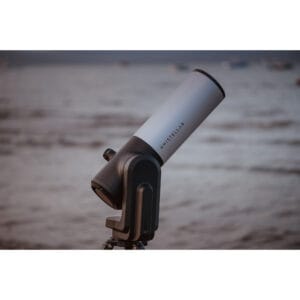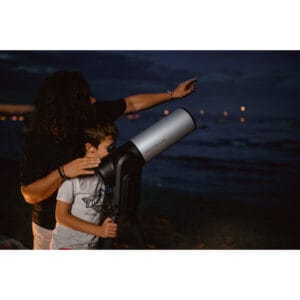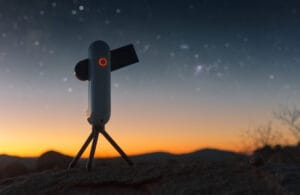The Venus Saturn Conjunction April 2025 is a rare and beautiful phenomenon in the early morning sky. On April 24, 2025, about 45 minutes before sunrise, Venus, Saturn, and the crescent moon will appear close together in the eastern sky. This unique conjunction is not only visually impressive but also a perfect opportunity to learn more about planetary movements.
In this guide, we’ll explain where and when to best observe this celestial spectacle, what to expect, and how to capture it.
What is a Conjunction?
A conjunction occurs when celestial bodies appear close together in the sky from our perspective. While they’re actually millions of kilometers apart, their orbital movements make them appear to meet briefly. Planetary conjunctions happen regularly, but such a triple formation with Venus, Saturn, and the moon is more rare.
When and where to Look?
📍 Date: Thursday, April 24, 2025
⏰ Time: Approximately 45 minutes before sunrise
📌 Viewing direction: Eastern horizon
🌙 Objects: Venus (bright), Saturn (fainter), and the thin crescent moon
Venus is the brightest of the trio and easily visible to the naked eye. Saturn appears slightly below it and can be seen without aids in clear skies, though binoculars or a telescope help distinguish it from background stars. The crescent moon completes the visual picture.

What Can You See?
- Venus appears as a bright “star-like” object with a steady glow. Through a telescope, you can see it showing phases, similar to the moon.
- Saturn is much fainter but recognizable by its golden-yellow color. With a telescope at sufficient magnification, you can even see its rings.
- The moon appears as a thin waning crescent and shows earthshine, where the dark part is dimly illuminated by sunlight reflected off Earth.
Photography and Observation Tips
- Use binoculars to distinguish Saturn from the background.
- With a telescope of at least 70mm, you can see details like the moon’s shadow or even Saturn’s rings.
- A smartphone mount is ideal for taking photos through your eyepiece. Pay attention to focus and keep your ISO low.
- Take multiple photos with short exposure times to limit Venus’s flare and increase contrast with the moon.
- For advanced users: stack multiple photos using apps like Siril or DeepSkyStacker to get the most out of the light.
Bonus: Mercury is also Visible
During this conjunction, Mercury will also be visible low in the eastern sky. This small planet is often difficult to observe, but it will be relatively well-positioned in the days around April 24. Those with an unobstructed view of the horizon can spot four celestial bodies within one field of view using good binoculars: moon, Venus, Saturn, and Mercury.
What Do You Need?
To best enjoy this conjunction, we recommend:
- A lightweight telescope with wide field of view, such as the Seestar S50
- A smart telescope with tracking, such as the DWARF 3, for stable images
- A comfortable reclining chair or field chair and warm clothing (it’s still chilly in the early morning)
📌 Tip: Use our telescope selection guide for stargazing to find the right instrument for such phenomena.
Join our Community
Have you taken photos of the conjunction? Share them with us! We collect the best observations in our monthly stargazing update. Subscribe to our newsletter or follow us on Instagram for real-time tips and updates.
Summary
The Venus Saturn Conjunction April 2025 is a special phenomenon you won’t want to miss. With the addition of the moon, it’s not only a visual spectacle but also an educational moment to experience the dynamics of the solar system. Whether you’re viewing with the naked eye or an advanced telescope, this is the perfect time to wake up early and admire the universe.





